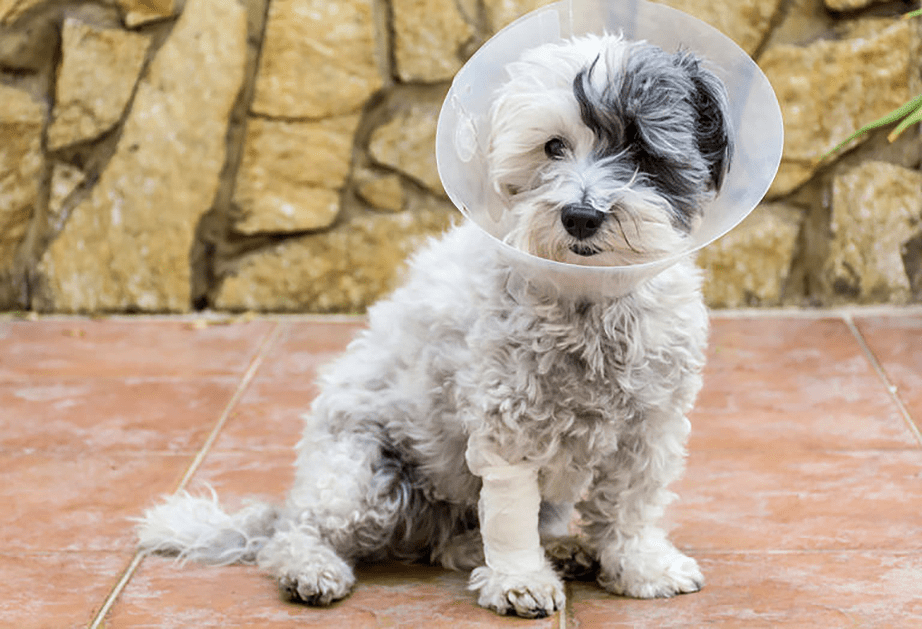Havana Silk Havanese - AKC Breeder of Merit
Natural Rearing & Sterilization
For Havana Silk Havanese, natural rearing encompasses more than mere diet. It embraces a holistic approach to life, aiming to care for dogs in a manner that closely aligns with nature.
Avoid invasive surgeries that compromise your dog’s health while they are still in their developmental stage. Spaying or neutering a puppy under one year can contribute to various conditions, including hip dysplasia, bone cancer, incontinence, and numerous other problems.
For comprehensive veterinary research that supports keeping dogs intact until at least their first birthday, please follow the links below to scientific documentation.
- Risks of Gonadectomized Dogs
- Long-Term Health Risks and Benefits Associated with Spay / Neuter in Dogs
- Endogenous Gonadal Hormone Exposure and Bone Sarcoma Risk
- Body condition of feral cats and the effect of neutering
- Effect of gonadectomy on subsequent development of age-related cognitive impairment in dogs
- Prostatic disorders in the dog
- Long-term risks and benefits of early-age gonadectomy in dogs
- Early-age neutering of dogs and cats in the United States
- Causes of cardiac tumors in dogs
- Urethral sphincter mechanism incompetence in male dogs related to neutering
- Hypothyroidism in dogs
- Changes in the behavior of dogs after castration
Higher Rates of Cancer
The age at which gonadectomy is performed significantly influences the risk of bone sarcoma. Both male and female dogs that undergo gonadectomy before the age of one have approximately a one-in-four-lifetime risk of developing bone sarcoma. Furthermore, they are significantly more likely to develop this condition than sexually intact dogs.
Castration increases the risk of highly malignant prostatic cancer, with almost all affected dogs being neutered individuals. Two studies indicate that neutered male dogs have an increased risk of prostatic adenocarcinoma compared to intact males.
Lactation in female dogs, similar to humans, contributes to the risk reduction of mammary tumors. For dogs that won’t be bred, spaying can help reduce the incidence of mammary tumors if performed before the first heat. Although it does not eliminate the possibility, statistical evidence shows a decreased risk.
Tumor occurrence rates are similar between males and females, but spayed females have over four times the relative risk compared to intact females. For hemangiosarcoma (HSA), spayed females have over five times the relative risk of intact females. Castrated males also have a slightly higher risk than intact males, who have 2.4 times the relative risk of intact females. In summary, neutering increases the risk of cardiac tumors in both sexes, while intact females have the lowest likelihood. Spayed females have the highest likelihood of developing a tumor.
Hypothyroidism
Neutering is the most significant gender-associated risk factor for developing hypothyroidism. Neutered males and spayed females have a higher relative risk than sexually intact females, who have a lower relative risk.
Ligament Injuries
Sterilization, regardless of gender, increases the prevalence of anterior cruciate ligament injury, suggesting a potential influence of gonadal gender on the injury’s occurrence.

Normal Growth
Natural Rearing emphasizes allowing a Havanese puppy to mature for optimal overall development and eventual adult size. Natural maturity entails keeping the puppy intact until it reaches full maturity. Before the puppy has reached its maximum size, premature spaying or neutering can often lead to oversized adult dogs, sometimes exceeding the size of their parents. This occurs because the surgery removes the hormones that signal the closure of bone growth plates.
Research Does Not Support Gonadectomy
Prepubertal gonadectomy is associated with a higher incidence of infectious diseases in dogs. In both male and female dogs, early-age gonadectomy is associated with higher rates of hip dysplasia, noise phobias, elimination when frightened, obesity, separation anxiety, escaping behaviors, inappropriate sexual behaviors, and relinquishment by the owner for any reason. In comparison, lower rates for all of these are observed among intact individuals.
Castrating dogs as a preventive measure against cancer is no longer medically justified. There is no medical indication to perform an ovariohysterectomy on healthy, non-pregnant female dogs. As complications associated with ovariohysterectomies often arise from the cervical stump and the transection of the broad ligament, many now advocate ovariectomy as the preferred sterilization procedure for female dogs.
Cognitive Impairment
Results suggest that circulating testosterone in sexually intact aging male dogs may slow the progression of cognitive impairment, particularly in dogs already showing signs of mild impairment. Estrogens are expected to have a similar protective effect in sexually intact female dogs, but the study lacked sufficient sexually intact female subjects to test this hypothesis. Further investigation is needed to explore methods for counteracting the effects of sex hormone loss in gonadectomized dogs.
Incontinence
Urinary incontinence occurs in approximately 9.7% of spayed bitches, with a lower incidence than when spaying is performed after the first heat. The condition affects 12.5% of large-breed bitches (over 20 kg) and 5.1% of small-breed bitches (under 20 kg). However, early spaying leads to more distinct clinical signs of urinary incontinence than late spaying; early-age gonadectomy correlated with an increased rate of cystitis while decreasing age at gonadectomy was linked to an increased rate of urinary incontinence.
Research demonstrates that ovariohysterectomy decreases smooth muscle mass and connective tissue while increasing vascular plexus volumes in the urethra of spayed animals. Consequently, findings suggest a general weakening of the urethral wall due to ovariohysterectomy, which may affect the urethra’s closure mechanism. For female puppies experiencing frequent vaginitis or bladder infections and having an “innie” vulva, spaying them before their first heat is not advisable.
